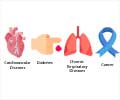To combat water-borne diseases ahead of the monsoon, the Yogi Adityanath government in UP is launching a statewide Disease Control Campaign from July 1 to 31.

Water-related Illnesses
Go to source) and seasonal changes ahead of the monsoon, the Yogi Adityanath government in Uttar Pradesh will launch the statewide Communicable Disease Control Campaign from July 1 to 31. Concurrently, the Dastak Abhiyan will be conducted from July 11 to July 31.A detailed action plan has been prepared, with officials instructed to implement it effectively. The Urban Development Department is actively supervising the initiative and issuing directives to urban bodies for seamless execution of the plan, said a government spokesman.
‘Starting July 1, the Uttar Pradesh government will launch the Dastak Abhiyan to combat #communicablediseases. This campaign aims to address health challenges posed by #waterborneillnesses and seasonal changes ahead of the monsoon.’





Action Plans for Communicable Disease Control Campaign
The Urban Development Directorate has instructed all Municipal Commissioners, General Managers of the Water Institute, and Executive Officers of the Municipal Council to implement action plans following the directives provided. Additionally, sensitisation meetings have been scheduled for Municipal Corporations, Municipal Councils, and all Nagar Panchayats. Instructions have been issued to provide the District Chief Medical Officer with a micro-plan detailing ward-wise and area-wise activities to be completed by June 28 for the special Communicable Disease Control Campaign.Urban bodies are also directed to submit consolidated reports to the government regarding the activities conducted and completed during the campaign as per this micro-plan.
Urban bodies have also been directed to collaborate with the Health Department to educate officials and staff about preventing encephalitis and other vector-borne and waterborne diseases, as well as maintaining cleanliness. Continuous awareness campaigns through Mohalla Committees will be conducted to address these health concerns.
Urban areas will also see regular fogging and targeted vector control activities in high-risk areas identified by the Health department. Additional instructions include promoting environmental and personal hygiene, preventing open defecation, ensuring the use of clean drinking water, and controlling mosquito population.
Guidelines have also been provided for waterlogging and water supply. Mini public water supply systems and tank-type stand posts must be installed and monitored according to standards. Roads and pavements will be constructed to prevent waterlogging and vegetation growth. Vegetation along roads will be regularly cleared, and activities will be focused on sensitive urban population and slum areas.
Advertisement
- Water-related Illnesses - (https://www.niehs.nih.gov/research/programs/climatechange/health_impacts/waterborne_diseases)









